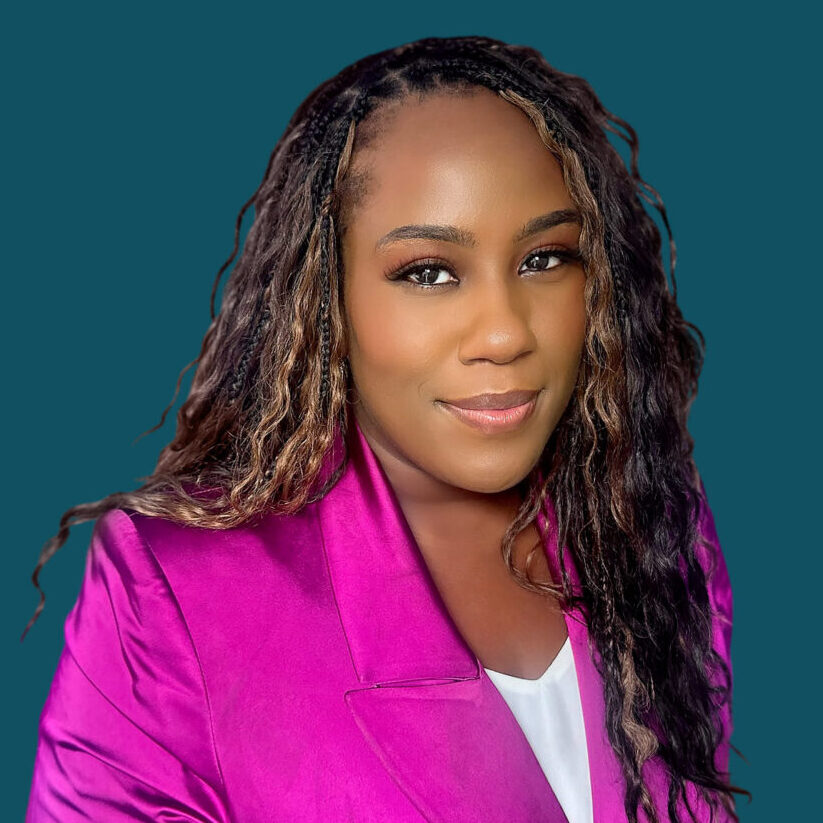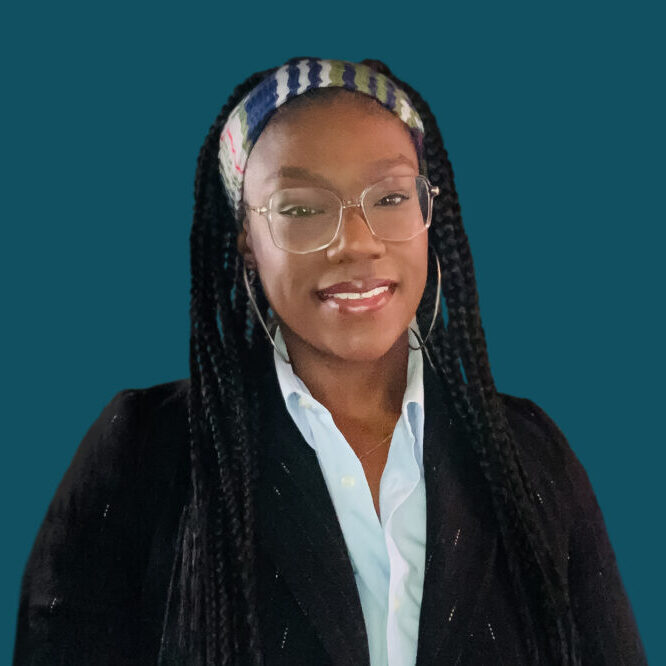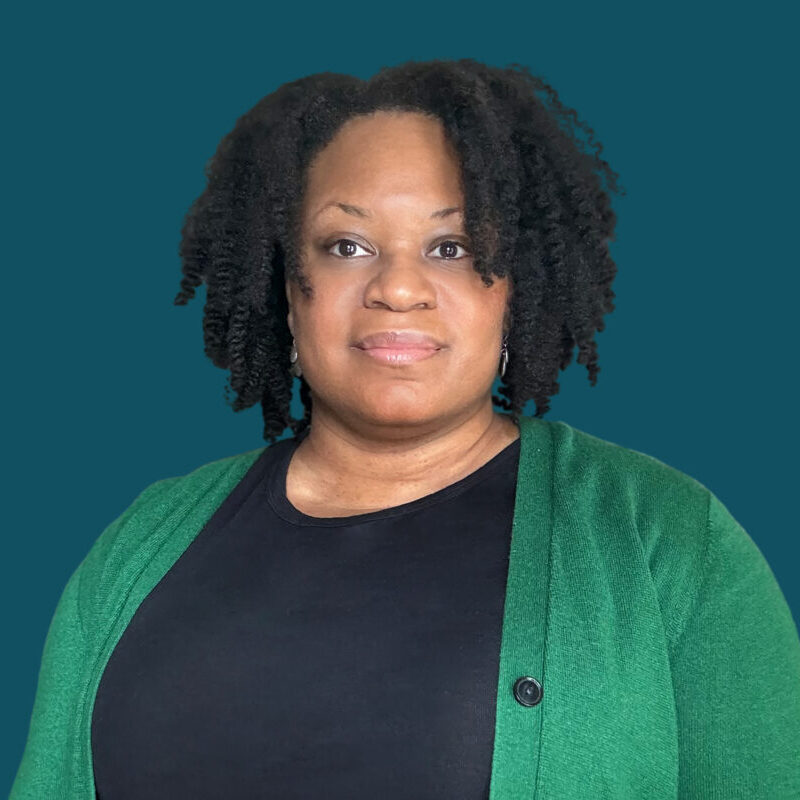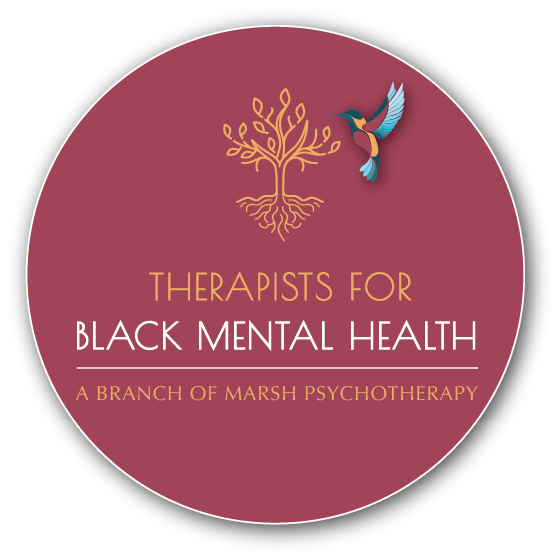
Therapists for
Black Mental Health
A branch of Marsh Psychotherapy
Our collective brings together therapists who offer unique perspectives and approaches to therapy, all deeply rooted in the cultural context of the Black experience.

Why Representation Matters: Black Therapists Supporting Black Clients
We celebrate the diverse experiences and strengths of Black mental health professionals dedicated to fostering healing and empowerment within our communities. Grounded in the belief that Black mental health is vital for both individual and communal well-being, we are committed to creating safe, supportive spaces where our clients can explore their identities, heal from trauma, and thrive.
We believe in amplifying our voices to provide authentic care that honors the richness of our identities.
Explore our profiles below to learn more about each of our New York therapists, their specialties, and how they can support you on your journey to mental wellness.
Representation matters! This is not to say that the black experience is monotonous but there is a level of understanding that only the black “experiencer” can fully understand. According to The American Psychology Association, 80% of Psychologists are White while 5% are Black. This disparity is reflected in the misdiagnosis and the reluctance in seeking treatment for traumas within the Black community.
Understanding intersectionality and its complexities is crucial in therapy. Just as not every partner is a perfect fit for everyone, various factors contribute to the success of the therapeutic alliance between a therapist and a patient. Some of the benefits of working with a Black therapist are:
Cultural Understanding: There is implicit communication and understanding that happens between individuals who share the same culture. This shared cultural background can foster a deeper connection and sense of being understood.
Intersectionality Awareness: A Black therapist is likely to have a nuanced understanding of intersectionality and how different aspects of identity (race, gender, socioeconomic status, etc.) intersect and impact mental health.
Relatability: The ability to relate to the therapist on a cultural level can create a sense of freedom and comfort that is difficult to achieve otherwise. This can enhance the therapeutic process and outcomes.
Tailored Approaches: A Black therapist can provide culturally sensitive approaches and interventions that are specifically tailored to the unique experiences and challenges faced by Black individuals. By focusing on these aspects, a Black therapist can offer a therapeutic experience that is both empathetic and effective.
As a Black therapist, I specialize in treating a variety of conditions and issues that take race into account, augmenting my overall expertise in mental health.
Some of the things I focus on are:
Anxiety and Depression: Many of my patients experience anxiety and depression stemming from childhood traumas and ongoing stressors.
Microaggressions: I help individuals navigate and heal from the microaggressions that challenge the development and blossoming of Black excellence.
Community Focus: Community is a significant variable in the Black experience. I emphasize the importance of community support and its impact on mental health.
Person In Environment (PIE): This concept is crucial in understanding the experiences of people of color, especially regarding the traumas related to gentrification and systemic inequalities.
By addressing these specific issues, I aim to provide a holistic and culturally sensitive approach to mental health care.
The needs of the Black community are diverse and multifaceted. Effective practice requires empathy and tailored approaches for each client. Recognizing the intersectionality within the Black experience—considering aspects like skin tone, gender, family history, employment, and education —enhances the depth of each session. This multifaceted experience brings an oxymoronic tone, where the challenges and beauty are explored together.
Congratulations on reaching this point! The hardest part is often getting started, and you’ve accomplished that. As Nelson Mandela once said, “It always
seems impossible until it’s done.” Everything you’ve experienced in life has brought you to this moment. I look forward to meeting with you to explore and discover the best parts of you.
Black mental health underscores the significant impact that the intersections of race, gender, and socioeconomic status have on the psychological well-being of the Black population and African diaspora. It recognizes the unique challenges black people face in a society that is often hostile towards individuals with melanated skin. By acknowledging the complexities of intersectionality, the impact of racial marginalization, and the historical context that has allowed for oppressive systems to endure, the Black mental health movement aims to address the specific mental health needs of Black individuals. It validates their lived experiences, advocates for the inclusion of racially diverse mental health professionals and works to eliminate the stigma surrounding discussions of mental health and seeking support. Consequently, Black mental health is undeniably important.
In addition to the increased likelihood of shared identity and racialized experiences, one of the benefits of engaging with a Black therapist is individuals can enter therapy as their authentic selves removing the need to code-switch or downplay their identities. Consequently, this enables Black clients to physically and emotionally relax as they know they are in the presence of a therapist who has navigated and overcome similar circumstances and who desires the same outcomes for their clients. This underscores the importance of representation.
As a therapist, I work with individuals and couples presenting with a diverse range of concerns and mental health diagnoses. I specialize in several areas, including trauma/ PTSD, depression, anxiety, grief and loss, and identity-related issues such as racial, gender, and cultural concerns, as well as women’s issues. Additionally, I provide support for clients facing adjustment and life transition challenges
As a Black woman, I stay deeply connected to the evolving needs of the Black community by remaining cognizant of health disparities, social injustices, and the complex systems of oppression perpetuated by institutionalized racism and discrimination. I actively engage in continuing education, attending workshops and training sessions that focus on the challenges faced by our community. More importantly, I prioritize my clients’ voices as sources of knowledge to remain informed about the diverse lived experiences of the Black community.
I want to begin by affirming something essential: you are worthy and deserving of a fulfilling life, rich with happiness and purpose. As a Black therapist, my mission is to support you in navigating the complexities of your unique journey. I understand that each individual carries a distinct narrative shaped by experiences that profoundly impact their lives, especially when considering the intersections of race, gender, social injustices, and oppression. I firmly believe that everyone deserves to be heard, to heal, and to become the best version of themselves. It is my privilege to offer support to individuals on their mental health journeys, with a particular focus on those who are Black, belong to minority groups, and come from underserved communities. Together, we can work toward fostering resilience, empowerment, and a deeper understanding of your lived experiences.

Historically, mental health care wasn’t designed with Black people in mind. Our stories were overlooked, and our experiences often dismissed. But Black mental health is essential because it gives us a space to truly be seen, heard, and understood in ways that honor who we are. It’s a place where we can let go of the need to constantly be strong and focus on our own healing. Taking care of your mental health isn’t just about addressing personal challenges—it’s about breaking cycles of trauma and stress that have been passed down through generations. The weight of systemic racism and oppression is something many of us carry, and therapy provides a safe space to release that weight and heal in ways that reflect our experiences.
It’s not about being resilient all the time—it’s about allowing yourself to feel, to heal, and to reclaim your story. Black mental health matters because your well-being matters. You deserve a space where your healing is the priority, and where you can thrive, not just survive.
I treat a full range of conditions—anxiety, depression, trauma, relationship challenges, and life transitions—because no matter who you are, mental health is complex and personal. At the same time, I understand the unique challenges that can come with being Black, like navigating spaces that don’t always make room for us or carrying the weight of generational and systemic struggles. These experiences don’t define you, but they can shape your well-being in ways that deserve to be acknowledged and supported. Whether it’s healing from deep pain or figuring out how to breathe a little easier in a world that sometimes demands too much, my goal is to meet you where you are and treat the whole person—not just the condition. Therapy with me is about creating space for all parts of your story, whether that’s centered on identity or the day-to-day challenges that shape your life. Above all, it’s your journey, and I’m here to support you every step of the way.
As a Black therapist, I understand how our shared cultural experiences can shape the challenges you face. But just because we’re both Black doesn’t mean our experiences are the same. What it does mean is that I understand the cultural backdrop you live in, and I can hold space for that without needing you to explain it. I honor both what we share and what makes your story uniquely yours. I work with people dealing with identity struggles, anxiety, depression, trauma, and the stress that comes with racial experiences. If you’ve felt the weight of being marginalized for who you are, I’m here to help. My goal is to create a space where you can explore what you’re going through in a way that feels empowering and real for you.
I stay connected by showing up—plain and simple. Whether it’s through conversations with friends, family, or community members, or by being present at cultural events, protests, and gatherings, I keep my ear to the ground and my heart open to what’s happening around us. I follow the stories that matter, pay attention to the shifts in our collective experience, and actively seek out voices from the community—whether it’s through books, social media, or just listening to the people I serve. I also check myself regularly to make sure I’m not stuck in outdated ways of thinking or working. It’s about being present, being willing to learn, and always being rooted in the culture and the truth of what our people need.
If you’re reading this, you’ve already taken an important step toward prioritizing your mental health. That decision shows strength and honors both your personal journey and the resilience of our community. I know that navigating the world as a Black individual can be heavy, but your healing is possible and your experiences matter. Trust in what brought you here. Give yourself the space to heal, grow, and embrace every part of your journey. You deserve to be seen, heard, and supported in a way that feels authentic to you. While the path may have its challenges, it’s yours to walk, and you don’t have to face it on your own. I invite you to take the next step, knowing that this space is here to offer you the support you need as you move forward.
What is the importance of Black Mental Health? To say I am black and my mental health matters is to affirm my humanity in an oppressive system that does not regard, marginalizes or obscures it. Due to the systemized and entrenched nature the oppression we face, we need spaces that declare that our humanity is equal to those of others and that therefore our need for us to heal, restore and regenerate is equally important.
As a black therapist focused on post traumatic growth and healing, I apply an anti-oppressive framework to my practice which means remaining attuned to the collective trauma we experience as a community and how that connects with our personal experiences. I listen to my clients and find moments of solidarity.
I wouldn’t say that there are specific conditions I treat as a therapist who is black. I treat all conditions, but I apply an anti-oppressive framework and trauma informed lens to my interpretation of how people arrived to where there are and I meet them there. I am careful not to pathologize or essentialize the conditions of my clients as the sum-total of they are. Rather I listen to what interpretation they give to their experiences, and how they integrate these into their construction of self. I give people the dignity of choosing who to be and how they would like to be seen.
As a client, working with a black therapist, I am reassured when I know my shared experiences will be filtered through a lens that is conscious of what it means to be black and how my social location and intersecting identities play a role in the challenges I face in my interior life. I can breathe, exhale and begin sharing with the knowledge that I will be seen, understood and validated without much explanatory effort.
Breathe. Exhale. Be encouraged knowing that this is where you can put your armor down. You are safe and home where you need to be. You do not have to be anyone else, here. You can be your authentic self and show up just as you are and as how you feel when you are here.
We all have unique intersecting identities, and none of us have the exact same experiences. Working with a Black therapist who is attuned to some of the complexities of your unique identities can give you the space to show up as your full, complex self.
Black Americans are continuously bombarded with micro- and macro aggressions, and many of us have developed emotional tools to help us survive. These protective tools can also work against us in some ways, keeping us from accessing care, support, and community. Collectively, Black people deserve space to be vulnerable. We can and should experience the full range of ourselves without having to be strong all the time.
I provide art therapy and talk psychotherapy services for people who are exploring their identity and place in the world, as well as those coping with emotional dysregulation, chronic suicidal ideation, or with a history of difficult mental illness diagnoses.
As a Black woman therapist, I prioritize therapeutic techniques targeted toward holding space for the ebbs and flows of our collective experiences as a community, and how those may manifests on an individual level for the clients I work with.
Your experiences matter, and you deserve the chance to know yourself and be known by others fully. I hope to support you in cultivating a deep self acceptance so that you can live a profound and fulfilling life.





